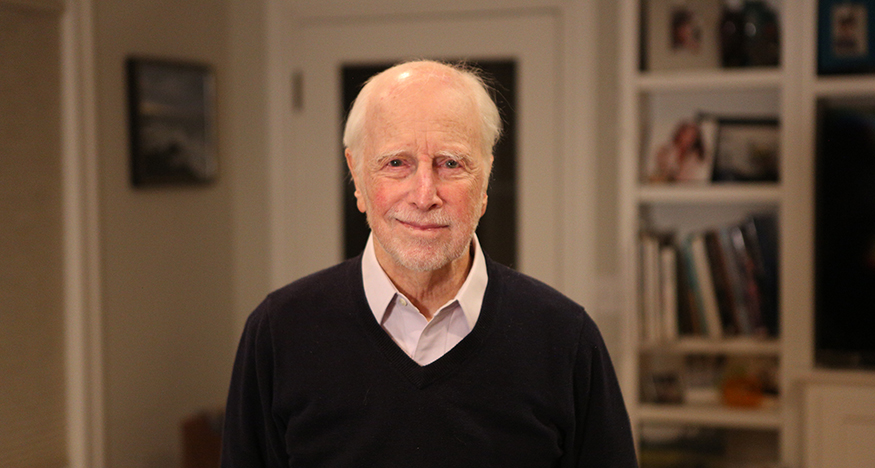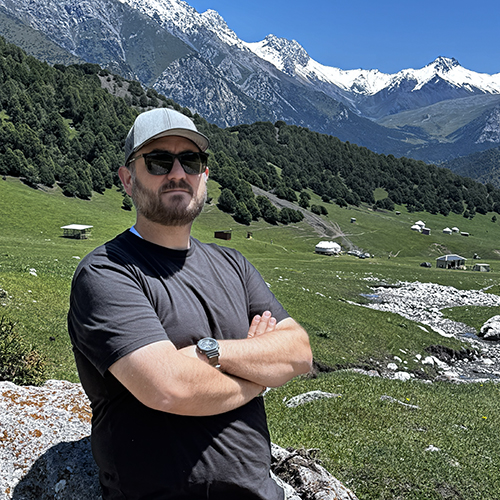
Tony Greenwald, UW professor emeritus of psychology — along with Harvard colleague Mahzarin Banaji — has been honored with a Frontiers of Knowledge Award, presented by the BBVA Foundation to recognize and reward contributions of singular impact in science, technology, the humanities, and music. This year's 400,000 euro award for Social Sciences is divided among five recipients, with each honoree receiving 80,000 euros.
Greenwald and Banaji are being recognized for developing the Implicit Association Test, an online test that explores our implicit biases — attitudes and stereotypes that affect perception and judgment without our being aware of it. The test involves classifying words and images rapidly according to their meanings. Through that process, the test captures the test taker’s implicit biases toward — depending on the test version — race, gender, age, and dozens of other traits and preferences. Since its debut in 1998, the test has been taken online more than 25 million times. Its concepts have been the subject of classroom and workplace debates, policies, and programs.
Announcing the Frontiers of Knowledge Award, the BBVA Foundation noted that the Implicit Association Test has served as a starting point for numerous applications in clinical psychology, education, marketing and diversity management, and has been used for data collection in over 2,000 papers.
The test captures the test taker’s implicit biases toward — depending on the test version — race, gender, age, and dozens of other traits and preferences.
“As long as people cooperate with the instructions and do the tasks rapidly, the test is going to work, as it has for all these years,” Greenwald explained in a 2016 Perspectives newsletter article about his work. He and Banaji discuss the Implicit Association Test and its findings in their 2013 book, Blindspot: Hidden Biases of Good People.
Greenwald joined the Department of Psychology in the UW College of Arts & Sciences as a professor in 1986. He transitioned to professor emeritus in 2020. Since retiring from teaching, he has been helping people who are suing on the basis of discrimination to win their cases by providing expert testimony based on the science of implicit bias.
Of receiving the Frontiers of Knowledge Award, Greenwald says, “I had previously heard of the Frontiers award but had no idea it might go to a social psychologist. I have plans to contribute the award’s non-trivial monetary component to well-conceived anti-discrimination efforts of social justice non-profits.”
The Frontiers of Knowledge Awards were established by the BBVA Foundation in 2008 “to celebrate and promote the value of knowledge as a global public good, the best instrument we have to confront the great challenges of our time and expand individual worldviews.”
Hear Tony Greenwald speak about his work in a video on the Frontiers of Knowledge Award announcement page, where you can also read about the other award recipients. To take an implicit association test, visit Project Implicit.
More Stories

AI in the Classroom? For Faculty, It's Complicated
Three College of Arts & Sciences professors discuss the impact of AI on their teaching and on student learning. The consensus? It’s complicated.

Through Soil Science, an Adventure in Kyrgyzstan
Chemistry PhD alum Jonathan Cox spent most of 2025 in Kyrgyzstan, helping farmers improve their soil—and their crops—through soil testing.

A Sports Obsession Inspires a Career
Thuc Nhi Nguyen got her start the UW Daily. Now she's a sports reporter for Los Angeles Times, writing about the Lakers and the Olympics.
